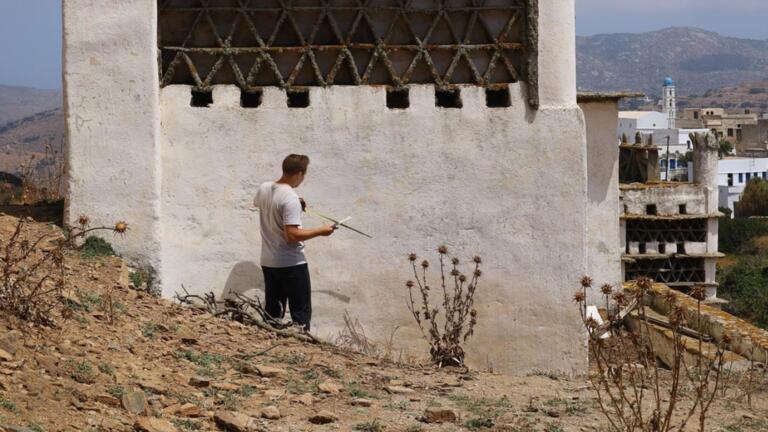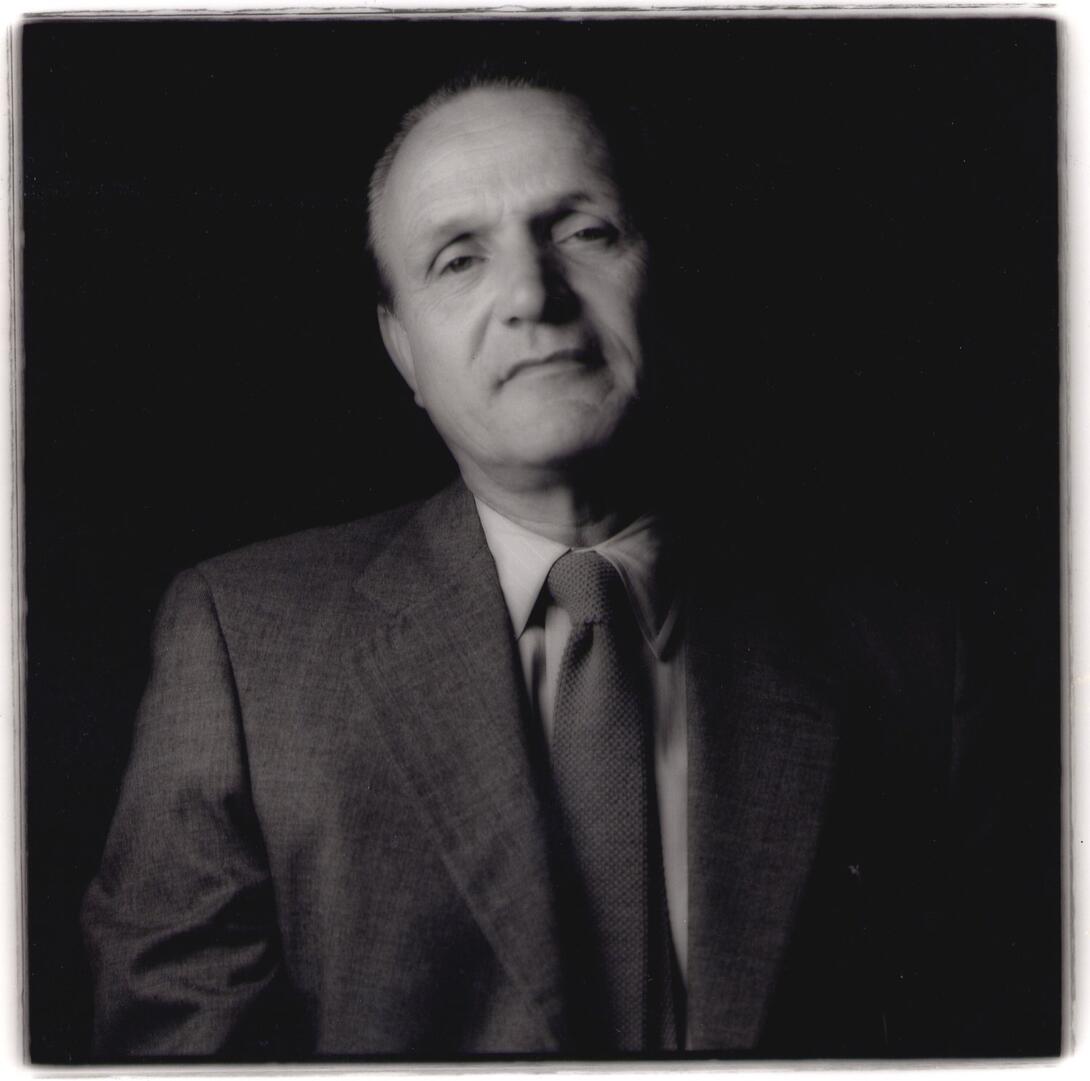
Delbert Highlands Travel Fellowship
Alumni Award
Carter Nelson (B.Arch '17), recipient of the 2022 Delbert Highlands Travel Fellowship, documents a dovecote on the Greek island of Tinos.
The Delbert Highlands Travel Fellowship supports Carnegie Mellon Architecture alumni in the study of collections belonging to locales to promote the professional development of awardees and contribute to the richness of our surroundings.
Jump To...
Carnegie Mellon Architecture will announce the call for applications for the next award cycle in the spring of 2025.
Mission
The Fellowship is named in honor of Professor Delbert Highlands, who taught courses in architectural design, design theory and architectural history from the 1960s through the first decade of this century. He has been widely recognized as a seminal teacher whose skill and understanding enriched the educations of generations of students.

Professor Highlands emphasized the “individual,” the “particular” and the “local” in his teaching. His courses were grounded in authoritative scholarship and meticulously presented fundamentals, but always went further by asking students to think of “this time,” “this place” and this “occupancy.” His teaching presented prospects for a life of work that were inspiring and that would always present fresh challenges to learn more, go deeper and design buildings that truly engage our humanity. He was a key influence in the lives of hundreds of graduates of the school.
In keeping with Professor Highlands’ thinking and contributions to the school, the Fellowship supports the study of collections belonging to locales. There are perhaps endless possibilities: from the frescoes of a remote town to the building vernacular of a whole province, to many options that have not yet been thought of. The common denominators will be the local and the particular.
The Fellowship is intended to directly support the professional development of individual awardees to contribute to the richness of our surroundings.
Evaluation Criteria
To be considered for the Fellowship, applicants must submit a project proposal that includes a proposed travel budget and may include images. Proposals must not exceed two pages in length (8.5"x11" paper size). Proposals should be made for projects whose completion is anticipated for the year the award is received or slightly beyond. The proposal should be uploaded as a PDF document and must not include the applicant’s name or other identifying information, due to the blind review process.
Upon completion of the Fellowship, there will be an obligation for reporting, presentation to the school and delivery of materials to a Fellowship archive. It is recognized that the form of reporting may vary significantly with the applicant and the subject matter. Recognizing that communication skills and interests will vary among awardees, latitude will be given to the ways in which awardees will contribute results of their travel to the school. Anticipated formats include lectures, seminars and exhibitions.
The jury conducts a blind review process and chooses a winner and an alternate based on merit only.
2024 Jury: Doug Cooper, faculty and muralist; Gerard Damiani, faculty and practitioner; Daniel Garber, FAIA, practicing architect (B.Arch ‘79); Sheldon Goettel, retired practitioner (B.Arch ‘79); Can Tiryaki, practitioner and former Highlands awardee (B.Arch ‘98); Heather Young, practicing architect
2024 Award Amount: $12,000
Eligibility & Schedule
This Fellowship is open to all Carnegie Mellon Architecture alumni. Students in the final year of their studies may apply provided that they will have graduated by the time they receive the award. Awardees cannot be enrolled in an educational institution during the period of travel. Faculty and employees of CMU, former Fellowship-winners and members of the founding committee are not eligible.
Carnegie Mellon Architecture will announce the call for applications for the next award cycle in the spring of 2025.
Award Recipients
- 2024: Susie Kim (B.Arch ‘23), Proposal: Hiroshima as Tabular Rasa: a new modern urban ethos in response to crisis and uncertainty
- 2022: Carter Nelson (B.Arch '17), Proposal: Dovecotes of Tinos
- 2020: Michael Baker (B.Arch ‘05), Proposal: The Churches of Chiloé and the Jesuit “Circular Mission”
- 2018: Dan Burdzy (B.Arch ‘13), Proposal: The Value of Junk: Adventure Playgrounds of London and Berlin
- 2016: Louisa Jáuregui (B.Arch '09), Proposal: A German Paradigm for Reexamining Residual Urban Spaces
- 2014: Matthew Scarlett (B.Arch '08), Proposal: Asmara: A Case for the City in the City
- 2012: William Riehm (B.Arch '94), Proposal: Inland Gambian Preservation: A Case Study and Travel Narrative
- 2010: Can Tiryaki (B.Arch '98), Proposal: Transitions in Religious Architecture in Asia Minor